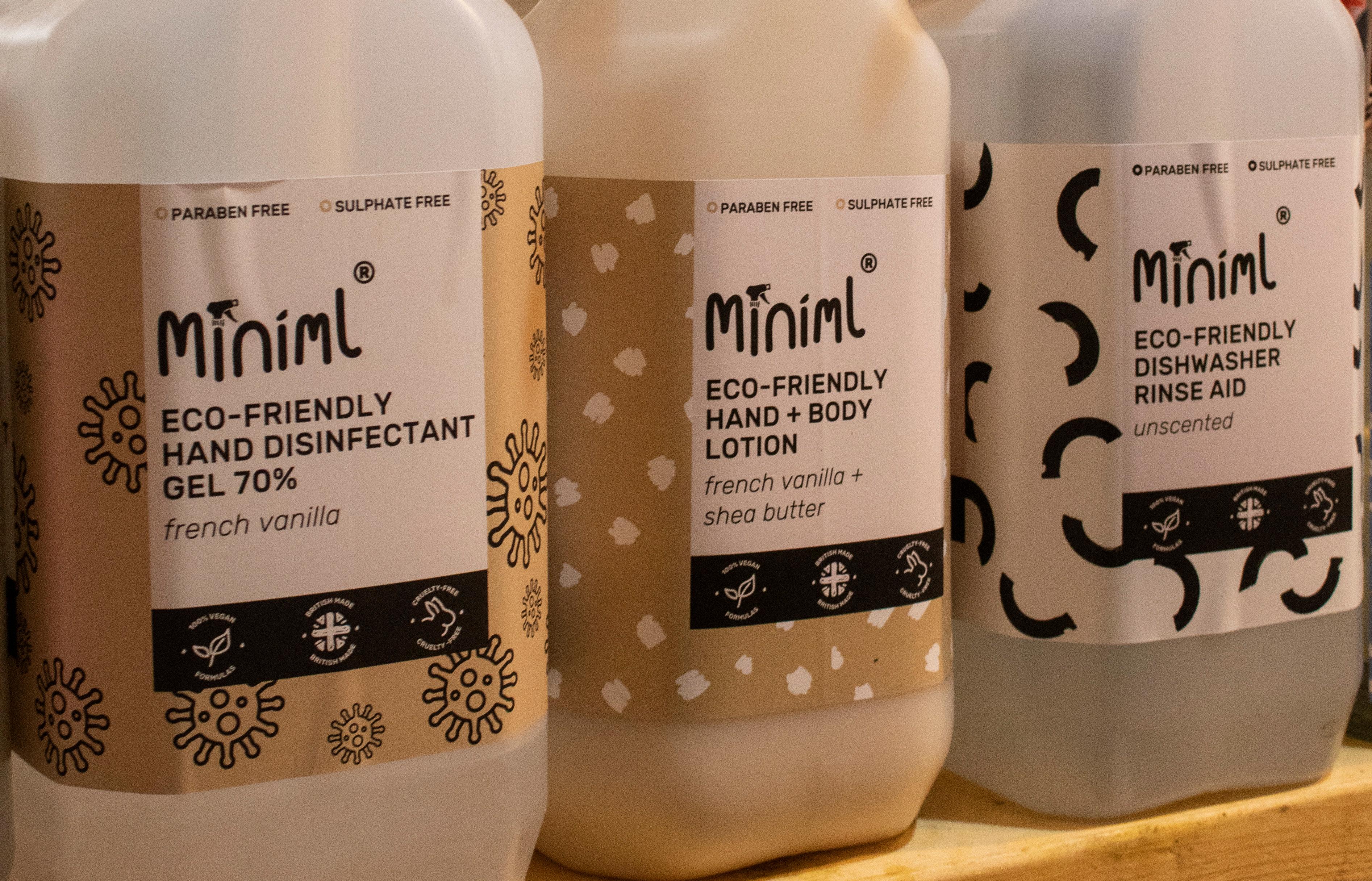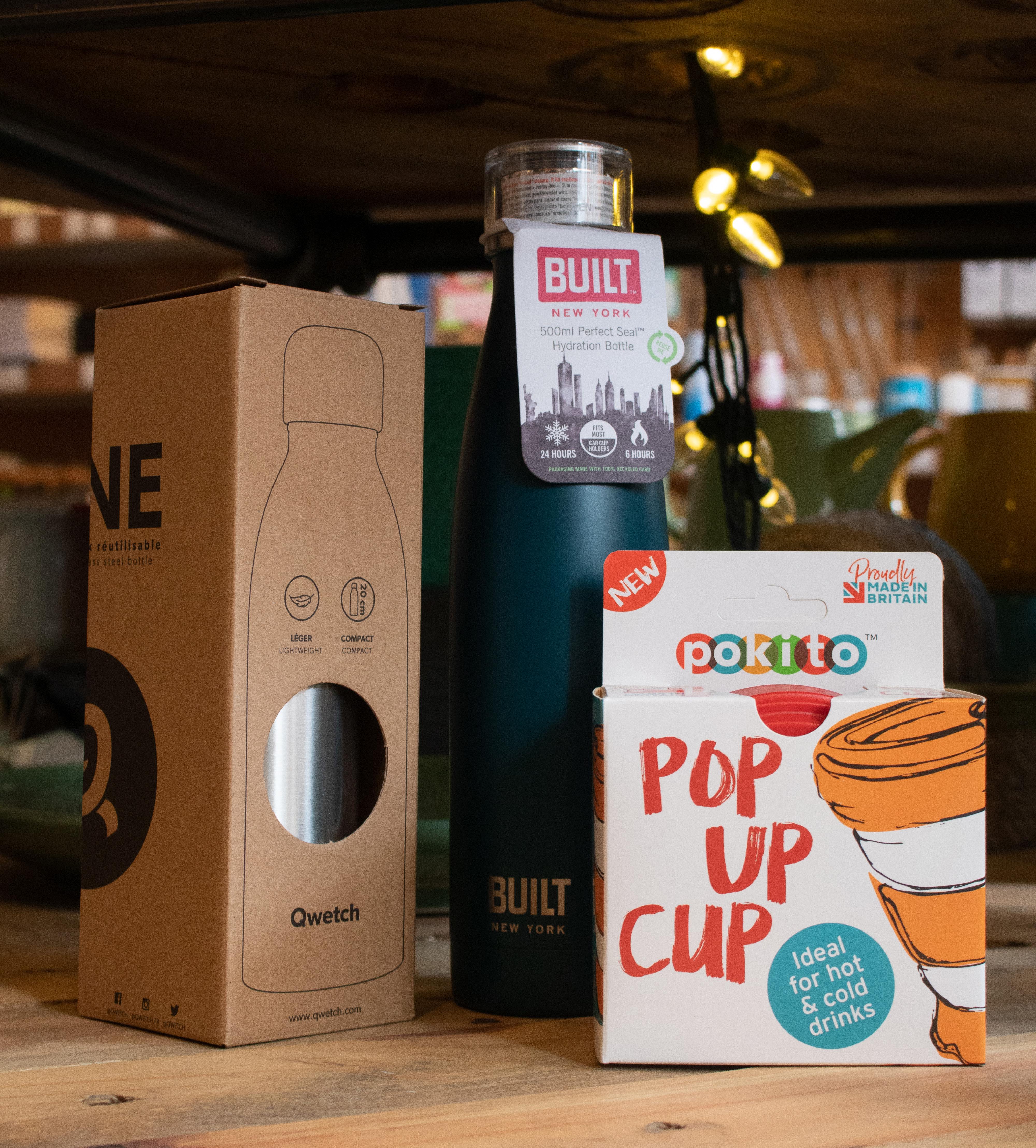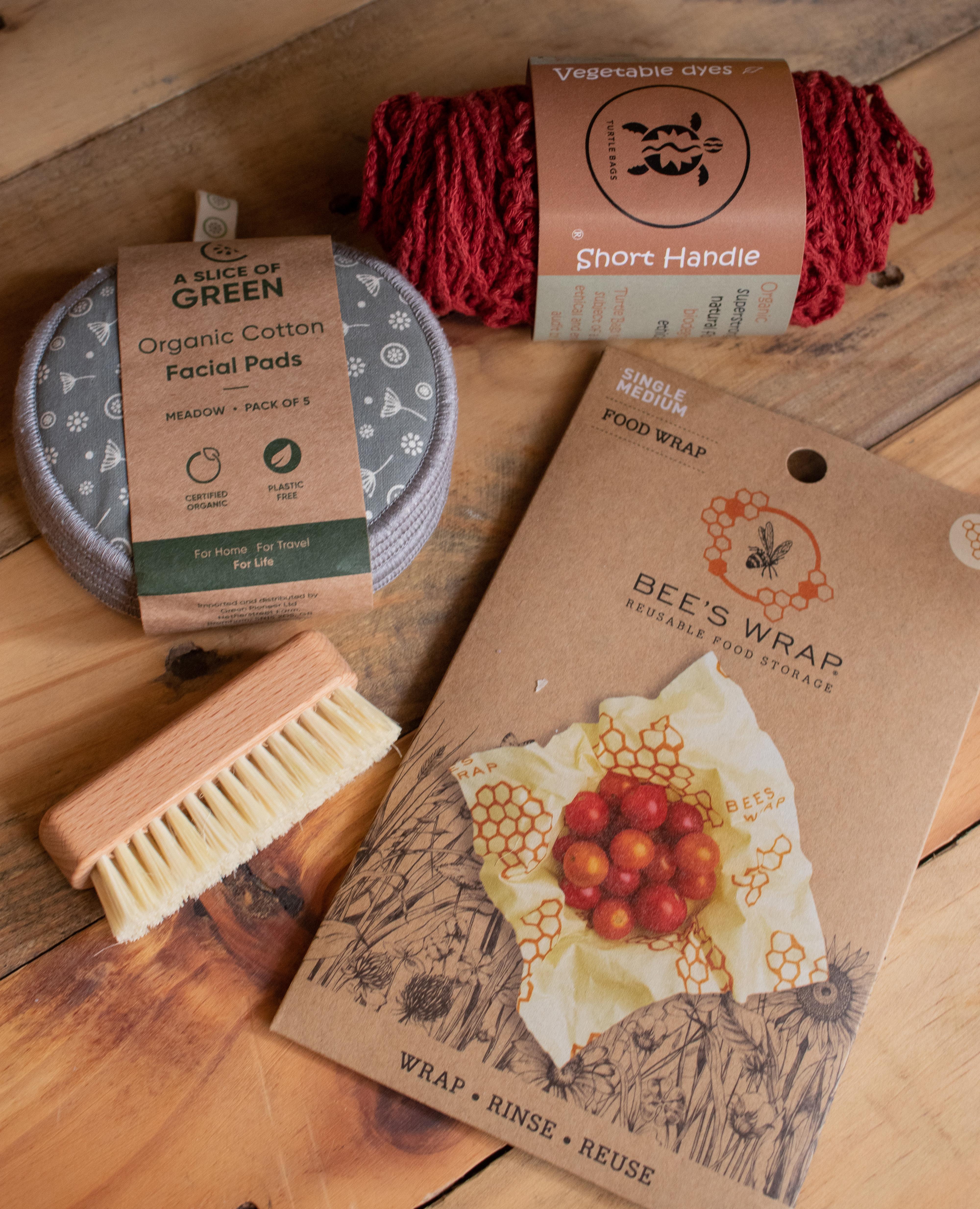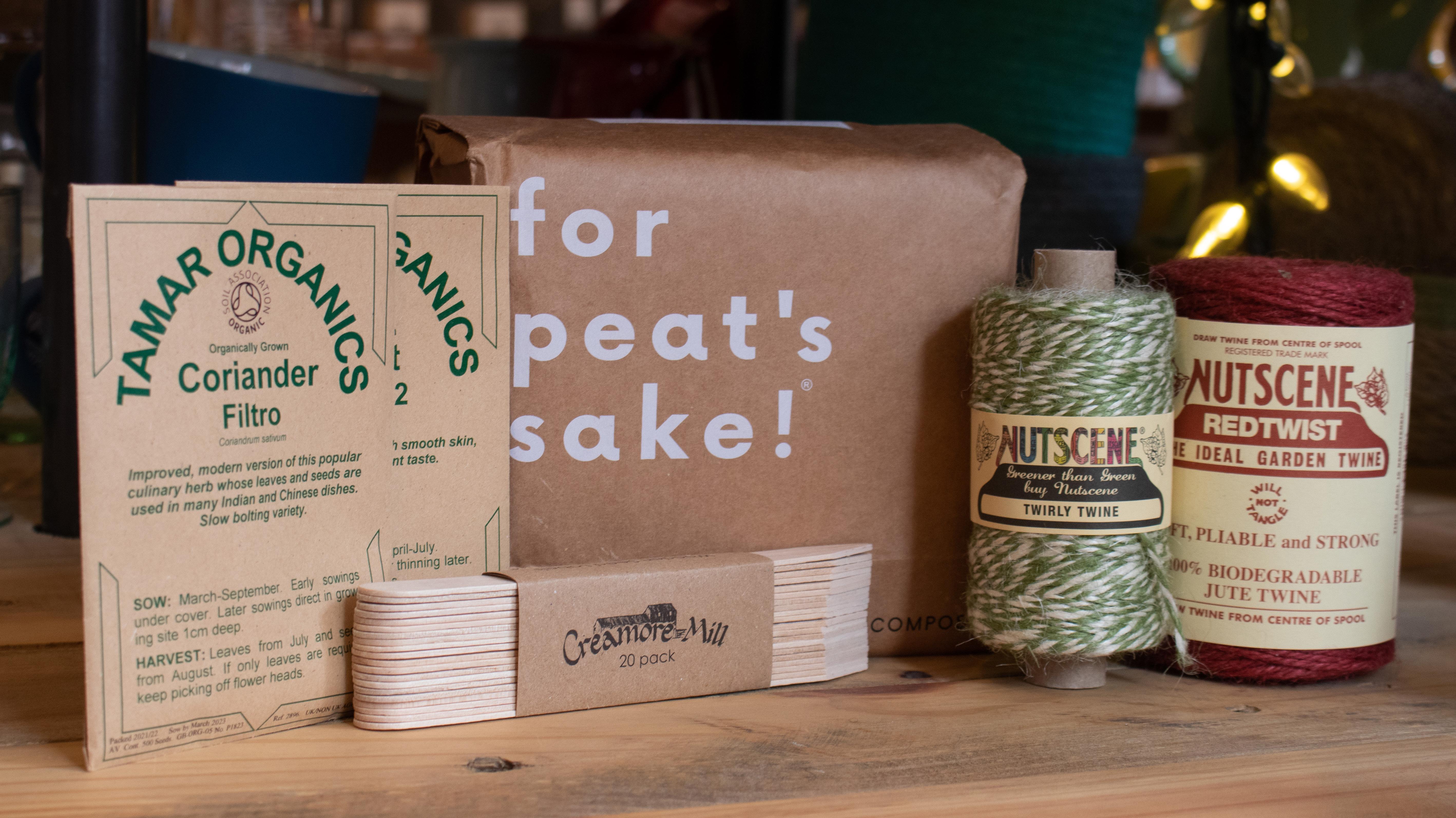
5 minute read
fashion sustainablity tips with synne
by Synne Steinsli
We can all agree that fast fashion is everywhere nowadays, shopping has never been easier, and trends are cycling through like Chris Hoy in the Velodrome! We’re exposed to new trends and styles every day, whether this is on social media or through ads. Influencers are flaunting their clothing hauls that they have spent hundreds of pounds on and if you see something you like you can purchase and receive the item within the week - if you don’t like it, you can just return it, so easy right? But do we actually ever stop to think about the effects fast fashion retailers has on the planet?
Advertisement
According to Business Insider, fashion production makes up around 10% of total global carbon emissions. It dries up water sources and pollutes rivers, yet 85% of all textiles go to landfills each year. Pretty scary stuff, but that’s just the start of itlet’s go through some of the environmental impacts fast fashion has.
To name a handful of the effects on the planet: the depletion of non-renewable sources, the emission of greenhouse gasses and the vast use of water and energy. The fashion industry is the second largest consumer of water - requiring around 2600 litres to produce just one cotton shirt! Dying clothes also uses large quantities of fresh water, combined with colour altering chemicals and other substances, many companies dump their wastewater in local rivers instead of disposing of it responsibly. This is not only bad for the people who live in these areas but for our environment too - I would rather not have this on my conscience.
As you probably know, many clothing brands use synthetic fibres like polyester, nylon and acrylic, (which is something I need to stretch over that bloat from the dominos I had last night!) all of which take hundreds of years to biodegrade. According to a report from the international union for conservation of nature (IUCN), it is estimated that 35% of all microplastics in the ocean come from the laundering of synthetic textiles like polyester. I can’t be the only one thinking this is definitely not good for sea life? The process of turning plastic fibres into textiles requires large amounts of petroleum and is highly energy demanding.
Enough with the discouraging statistics, let’s think about what we can do! Shopping on fast fashion sites isn’t ideal but we have to remember that not all of us (to name one - financially struggling young adults like myself) can afford the brilliantly, highly sustainable - not so brilliantly, highly expensive clothing brands.
With this in mind, it’s important to purchase clothes you know you will wear over and over again, even after it’s no longer “trendy”. We can also ‘simply’ buy less clothing, as one of the most environmentally sustainable options is the clothing that’s already in your wardrobe. Always make sure to think twice before throwing your clothes out, is it possible to repair them, maybe upcycle them? If they’re not ruined you could always sell them on second hand apps like Depop or vinted, or donate them to friends, family, neighbours or charity shops.
Speaking of charity shops, they are a great way to purchase clothing in a more sustainable way as these clothes already exist and don’t require that large amount of water we talked about to make. Second hand clothes have been passed on to give them the opportunity to be loved by someone new, plus who doesn’t want to support local charities to do the amazing work they do!
Last thing I’m going to mention is to keep an eye on your laundry, as washing clothes, though you may not think it, does have an impact on our environment. By making sure that you fill your wash nice and full it means that less wash cycles will have to be done, meaning less water is being used. I need to remember to take my own advice here as I have definitely been guilty of chucking in that one white shirt by itself that I seem to always spill ketchup down the front of...
It’s also worth trying not to wash items of clothing that don’t really need to be washed, I’m starting a rule in my house that if it doesn’t smell or have a stain on, it doesn’t need to be washed. (I’d maybe say the exception to this is pants and socks, but you do you!)
Washing wcith cold water also uses less energy and is therefore better for the environment. And lastly, try to air dry your clothes as much as possible, because again, that dryer will use a heap of energy that you probably don’t need to use if it’s a dry and sunny day. she took off her shoes... and she felt free.
Fast fashion is pretty much unavoidable, but hopefully reading this will make you think a little bit more and maybe next time you feel the itch to do some fast fashion shopping you can remember what your old friend Synne said about the impacts before clicking purchase.
By Hannah Wigglesworth & Maff Punton
Born from a love of making and mending, Heima is an independent brick-and-mortar shop at 34 Gillygate, York. The store is run by the ever so helpful and highly knowledgeable Maff Punton, a thirdgeneration hardware store owner, who is keen to share his passion for improving and creating. With two rooms of really useful stuff, Maff and the team can help you with any question, query or problem you have with his fountain of expertise.
Over the last three years, the team at Heima has worked on gathering an amazing assortment of products – from paint to toothbrushes, deodorant to mugs, garden twine, coffee grinders and an array of brushes for your every need. With a focus on practical products which are as useful as can be, Heima is also conscious of our responsibility of taking care of the environment.
I popped down the road to have a chinwag with Maff, who very helpfully, shared his top 5 tips and picks from the Heima store that will be most useful to those who are undertaking a sustainability journey - whether you’re an eco-expert or a sustainability-stranger.
Refills
A simple way to reduce the amount of plastic you buy, at Heima we've got refills for all sorts of personal care and cleaning products, from hand washes and shampoos to laundry liquid and dishwasher powder!
Plastic Free Toiletries
Another reducer of plastics, we have bar and solid alternatives for many products which typically come in plastic packaging. Including Shower Blocks, Ben and Anna solid deodorant, EcoLiving Shampoo Bars and Toothpaste Tablets.

Water Bottles and Coffee Cups
An easy and convenient swap! Having a reusable water bottle or coffee cup not only cuts down on single use items but keeps drinks colder or hotter for longer!

5
4
Reusables over Single Use
These products are great alternatives for single use items. They include washable cotton rounds, beeswax food wraps and shopping bags made with biodegradable dyes.

Grow Your Own
Another way to live more sustainably is to reduce food miles and grow some of your own food! We have a wide range of veg, herb and flower seeds and everything you'll need to get growing! Including peat-free coconut coir compost, biodegradable twines and wooden seed labels.








